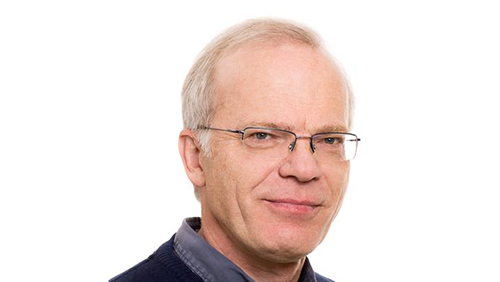The UB awards an honorary doctorate to Kristian Seip, one of the world’s leading researchers in mathematical analysis


Kristian Seip is one of the leading figures in the field of mathematical analysis, a branch of mathematics that analyses functions, i.e. decomposes them into superpositions of more elementary functions. His field of expertise includes real and complex analysis and its interactions with other fields. Over the last few decades, he has made extremely influential contributions, both from a theoretical perspective — with operator theory and number theory — and in more applied areas, including signal theory.
Facing a basic problem in this field, that of the limits of the efficient compression capacity of analogue signals, Professor Seip succeeded in exporting classical mathematical techniques, whose origins were in Beurling’s results (1960s), to establish the limits, in particular with Gabor’s wavelets, a system for digitising analogue signals. Moreover, his solutions were also applied to other digitisation systems.
New paths on the Millennium Prize Problems
The NTNU professor has also been one of the leading figures in research on the Riemann function that appears in the Riemann hypothesis, a conjecture related to the distribution of prime numbers in the set of naturals, which is one of the most complex open problems in contemporary mathematics. Familiarly referred to as “the beast”, it has been chosen as one of the challenges of the Millennium Prize by the Clay Mathematics Institute (CMI). His study on the connection of the zeros of the Riemann zeta function and Dirichlet series has introduced new tools to improve the results of the study of these series, opening up new problems and techniques in an already hard-working field.
In addition to his scientific excellence, Professor Seip’s commitment to mathematical scientific structures in Catalonia is outstanding: he is the editor of Collectanea Mathematica, the UB’s mathematics journal, and is a member of the Scientific Committee of the Ferran Sunyer i Balaguer Prize, given by the foundation that carried the same name. He has also been a member of the Scientific Advisory Board of the Mathematical Research Centre.
Kristian Seip (Noruega, 1962) received his PhD from the Norwegian Institute of Technology (later renamed the Norwegian University of Science and Technology) in 1988, and became a professor in 1993. He has been an invited speaker at the International Congress of Mathematicians in Berlin (1998) and was a member of the editorial staff of the journal Acta Mathematica from 2003 to 2012. He chaired the Norwegian Mathematical Society from 2003 to 2007, and was part of the committee of the prestigious Abel Prize, the equivalent of the Nobel Prize in other disciplines, from 2007 to 2010. Furthermore, he is currently a member of the Norwegian Academy of Science and Letters, the American Mathematical Society, and editor of the Journal of Functional Analysis.
